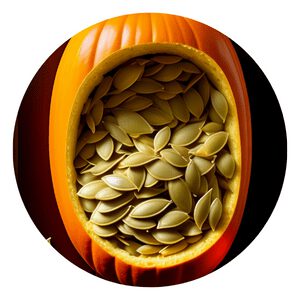Grow Organic Round Zucchini
Organic round zucchini is a unique vegetable that can add variety to your garden and dinner table.
Growing organic round zucchini is easy and can be achieved with minimal effort.
This article provides step-by-step instructions on how to plant, grow and harvest this nutritious vegetable.
Organic round zucchinis are nutritious, tasty, and packed with vitamins and minerals.
With its numerous benefits, this vegetable should be a staple in every garden!
Round Zucchini Menu
The benefits of growing organic round zucchini
Organic round zucchini has a number of benefits over conventional methods.
It is healthier and contains fewer chemicals, which means the taste and texture of the zucchini are better than those grown with pesticides.
Organic growing also enhances the soil’s fertility since it relies on crop rotation and cover crops to improve soil health instead of synthetic chemical fertilizers.
In addition, organic growing reduces water contamination because it prevents runoff from entering waterways.
The use of natural pest control methods also ensures that beneficial insects like ladybugs and lacewings remain in the environment to help keep pests away from crops.
Organic growing is also more sustainable than traditional farming techniques because it does not rely on synthetic chemicals or non-renewable resources such as fossil fuels for production.
This means that organic farmers can reduce their carbon footprint while still producing healthy, high-quality food for their community.
Finally, by supporting local organic farmers, you can help protect rural communities and promote economic development in areas where small-scale farms are struggling to stay afloat.
Choosing Seeds
When selecting seeds for organic round zucchini, it is important to look for varieties that are well suited to the local climate and soil conditions.
Look for heirloom varieties, as these will often be better adapted to the area.
Organic seeds should be non-GMO, untreated, and disease-free.
Many companies offer certified organic seed varieties specifically designed for organic gardening.
The packaging should indicate if the seeds are certified organic or not.
Organic zucchini seed selection should also include a variety with good disease resistance and high yields.
Research specific cultivars in order to find out which ones produce the best results in your local area.
Analyze what other gardeners have said about their success with certain cultivars, paying attention to comments about yields, taste, shape of fruit, pests and diseases encountered when growing them etc.
Also consider how long it takes from planting until harvest as some varieties may mature faster than others.
Finally make sure that the variety you pick produces round rather than oval fruits so you can get the desired shape of your end product!
Soil Preparation
Composting is an important step in preparing your soil for planting organic round zucchini.
Begin by creating a compost pile with equal parts of green materials, such as grass clippings and kitchen scraps, and brown material, such as leaves and wood chips.
The compost should be at least three feet high to ensure decomposition.
Make sure to turn the pile every two weeks so that it breaks down evenly.
After 6-8 weeks, the compost should be ready to use on your soil.
Mulching is another important step in preparing soil for planting organic round zucchini.
Spread a 2-3 inch layer of mulch over the entire area where you will plant the zucchini plants; this helps keep the weeds at bay and keeps moisture levels consistent for optimal growth.
A good choice of mulch would be straw or hay–not only are they affordable but also break down slowly over time enriching the soil with nutrients when added each season before planting starts again.
Cover crops are also beneficial when prepping your soil for organic round zucchini plants as they help increase organic matter in the ground while controlling weeds and pests naturally without using harsh chemicals or pesticides that could harm your vegetables later on in their growth cycle.
Plant cover crops like winter rye or buckwheat several weeks prior to planting –these will help fix nitrogen into the ground while providing a protective barrier from weeds that can compete with young seedlings during germination stages of their life cycle.
Organic round zucchini glow, Sprouting in a garden row. Their bright green tendrils twist, Encouraged by the summer's mist. The flowers show themselves at last, Giving way to what will pass. A flavorful harvest will soon be ripe, A lovely veggie that makes a meal just right!
Chappy The Gardener
Planting
Organic round zucchini seeds should be planted in the early spring, when the soil is moist and temperatures are still cool.
Planting should occur once all threat of frost has passed. The seeds should be spaced 6 to 12 inches apart in rows that are three to four feet apart.
When planting, a seed should be placed 1 inch deep in the soil and covered with a thin layer of compost or potting soil.
Water regularly, ensuring that each plant receives at least one inch of water per week for optimal growth.
Avoid over-watering as this can cause rot or mildew on the fruits and foliage.
Mulching around plants is also recommended to help retain moisture and reduce weeds from growing near your plants. Fertilizer may also be added every few weeks during peak growing season for extra nutrients to ensure healthy growth.
Organic Pest Control
Crop rotation is a key organic pest control method.
It involves changing the location of where crops are grown each season, preventing pests from building up in the soil.
Planting different types of crops in succession can also help to prevent pests from accumulating because certain kinds of plants attract insects that feed on other plant-attacking bugs.
For example, when planting round zucchini, try alternating it with a legume such as beans or peas every year.
Companion planting is another useful organic pest control technique; it involves interplanting two or more types of plants together to create a beneficial balance between them.
For example, basil can be planted around round zucchini plants to repel some common insect pests due to its strong smell and its ability to produce natural oils that ward off insects.
Additionally, marigolds have been known to deter nematodes and aphids when planted nearby, so they make excellent companions for round zucchini too.
Finally, natural insecticides made from plant extracts can be used as an effective form of organic pest control without introducing harmful chemicals into your garden environment.
Neem oil extracted from the neem tree has been shown to effectively repel or kill many common garden pests like caterpillars and whiteflies when applied directly on foliage.
Try using these methods along with regular checking for signs of infestation and proper sanitation practices such as removing any diseased or dead foliage promptly to reduce the risk of pests taking over your garden!
Disease Prevention
Organic methods of preventing and controlling diseases are an important part of managing a successful garden.
Soil amendments can help improve the quality of the soil, allowing plants to receive essential nutrients alongside added disease resistance.
Crop rotation is a key factor in avoiding monoculture practices which can encourage certain pests or diseases to become more severe.
Rotating your crops regularly will reduce the impact of any diseases that have been present in previous seasons, as well as limit their spread.
Finally, proper watering techniques are vital for keeping plants healthy and disease free.
Watering plants deeply at least once a week allows their roots to establish further into the ground, making them less susceptible to drought-borne pests like fungus gnats and root rot.
When watering round zucchini specifically, it’s important to avoid excessive moisture around their foliage as this can lead to foliar blight or mildew growths on leaves which will stunt their growth if left unchecked.
Fertilizer Options
Compost is an excellent option for providing nutrients to soil for growing round zucchini.
Compost is made up of decaying plant and animal matter, which can be collected from a variety of sources including kitchen scraps, yard waste and even manure.
When used as fertilizer for round zucchini plants, compost provides essential vitamins and minerals that help promote healthier growth.
Manure is another great organic fertilizer choice for growing round zucchini.
It’s rich in nitrogen, phosphorus and potassium which helps increase the fertility of the soil while promoting better root growth.
Manure can also contain beneficial microorganisms that help protect against pests and diseases in your garden.
Bone meal is a form of phosphate-rich organic fertilizer that is often used when planting round zucchini or other vegetables.
It’s high in calcium content and helps to improve soil structure while promoting stronger root development.
Bone meal helps to maintain good moisture levels in the soil while improving nutrient availability so plants can absorb all they need to thrive.
Homemade Fertilizer
Organic fertilizer is an important part of growing round zucchini. Fortunately, it’s easy to make your own organic fertilizer with kitchen scraps and other organic materials.
One way to make your own organic fertilizer is by using food scraps such as peels from fruits and vegetables, eggshells, coffee grounds, and tea leaves.
All of these items can be combined with soil in a compost pile where they’ll decompose into a nutrient-rich mixture you can use to fertilize your round zucchini plants.
You can also use animal manure as an organic fertilizer for round zucchini.
Horse, cow, chicken, rabbit, sheep and pig manure all have high levels of nitrogen that plants need to grow healthy fruit such as round zucchinis.
It’s important to mix the manure with soil before using it on the plants so that it won’t burn them or cause any other damage.
Finally, you could also use seaweed or fish meal as additional sources of nutrients for your round zucchini crop if available in your area.
Organic Soil Amendments
Organic soil amendments, such as kelp meal, worm castings, and rock phosphate offer a variety of benefits to growing organic round zucchini.
Kelp meal contains trace minerals and compounds essential for plant growth like nitrogen, phosphorus, and potassium.
When incorporated into the soil it can help promote healthier root systems by supplying more nutrients that are readily available to the plant.
Additionally, it can also be used as a way of reducing compaction in heavier soils.
Worm castings contain high levels of beneficial bacteria that improve soil fertility while improving drainage and aeration.
They’re also full of slow-release nutrients like nitrogen, calcium and magnesium which help establish healthy root systems.
Rock phosphate is a great source for phosphorous which helps plants with flowering as well as promoting strong root growth when added directly to the soil or made into compost tea.
All three organic soil amendments are incredibly helpful for growers looking to create nutrient rich soils for their organic round zucchini plants without relying on chemical fertilizer products that could harm the environment or produce less desirable results than using natural resources from nature.
Watering Techniques
When watering organic round zucchini plants, it is important to use the right amount of water and frequency.
To ensure that your plants thrive, you should water them deeply but not too often.
For optimal growth, aim for about one inch of water per week.
You can use a soil moisture meter to measure how much moisture the soil contains before deciding whether or not to add more.
When you need to water your plants, be sure to do so in the early morning or late evening when temperatures are cooler, as this prevents evaporation and helps the roots absorb more moisture.
Also consider using a drip irrigation system if possible; this ensures that each plant receives an even amount of water and also reduces waste by preventing runoff into nearby areas.
Finally, make sure not to overwater—too much can cause rot or disease in your plants!
Harvesting and Storage
Organic round zucchini plants should be harvested when the fruit is 6-8 inches in length.
The skin should be firm and glossy.
To harvest, hold the fruit gently near the stem and use a sharp knife to cut it off.
For larger plants, you may need to use garden shears or scissors instead of a knife.
Be sure not to pull the fruit off as this could damage the plant.
Once harvested, keep your zucchinis cool by storing them in an airtight container or bag in the refrigerator for up to one week.
If you’re going to use them immediately, store them at room temperature on a countertop or in a bowl or basket until ready for use.
Zucchinis are incredibly versatile vegetables that can be used in a variety of recipes from salads and stir-fries to soups and side dishes.
When cooking with zucchinis, remember that their flavor is best when cooked lightly; try grilling slices of zucchini for about 3 minutes on each side until lightly browned and tender-crisp.
You can also add chunks of raw zucchini into salads or sauté them with other vegetables like onions and garlic for delicious stir-fries!
Examples of Organic Round Zucchini Recipes
Stuffed Round Zucchini Boats: Cut the top off a round zucchini and scoop out the flesh. Fill the hollowed-out zucchini with a mixture of cooked ground meat, rice, onions, and herbs. Bake in the oven until the zucchini is tender and the filling is hot and bubbly.
Grilled Round Zucchini: Cut the zucchini into thick rounds and brush with olive oil. Season with salt and pepper, and grill until tender and lightly charred. Serve as a side dish or add to salads and sandwiches.
Round Zucchini and Corn Salad: Cut the zucchini into thin rounds and toss with fresh corn kernels, diced tomatoes, and chopped herbs. Drizzle with olive oil and lemon juice, and season with salt and pepper.
Baked Round Zucchini Fries: Cut the zucchini into thin fries, and coat in a mixture of breadcrumbs, parmesan cheese, and herbs. Bake in the oven until crispy and golden brown.
Round Zucchini Pizza Bites: Cut the zucchini into thick rounds and top with tomato sauce, cheese, and your favorite pizza toppings. Bake in the oven until the cheese is melted and bubbly.
Round Zucchini and Egg Breakfast Skillet: Cut the zucchini into thick rounds and sauté in a skillet with diced onions and garlic. Crack eggs over the top and bake in the oven until the eggs are set.
Creamy Round Zucchini Soup: Sauté diced onions and garlic in a pot, add sliced zucchini and vegetable broth, and simmer until the zucchini is tender. Puree with an immersion blender, add cream, and season with salt and pepper.
Round Zucchini and Ricotta Stuffed Shells: Stuff cooked pasta shells with a mixture of ricotta cheese, cooked round zucchini, and herbs. Bake in the oven with tomato sauce and mozzarella cheese until hot and bubbly.
Round Zucchini and Chicken Skewers: Cut the zucchini into thick rounds and skewer with chunks of marinated chicken. Grill until the chicken is cooked through and the zucchini is tender.
Round Zucchini and Goat Cheese Tart: Line a tart pan with pie crust, and fill with a mixture of sautéed round zucchini, goat cheese, and eggs. Bake in the oven until the filling is set and the crust is golden brown.
In conclusion, growing organic round zucchini is an easy and rewarding experience.
Not only is it delicious and nutritious, but it provides a unique way to enjoy the pleasures of growing your own food.
While there are many challenges associated with gardening, they are far outweighed by the satisfaction of harvesting your own home-grown produce.
When done properly, organic round zucchini is a great addition to any garden, and its hardiness makes it an ideal choice for both new gardeners and experienced farmers alike.
Click To Grow
Helps Us Grow – Share If You Like





















